On This Day in 2008: Brendon McCullum’s Explosive 158 Lights Up the IPL Opener
In the history of Indian cricket, 18th April holds a special place as the day the Indian Premier League (IPL) began its incredible journey in 2008. Since then, the IPL has grown into one of the most popular and exciting T20 leagues in the world.
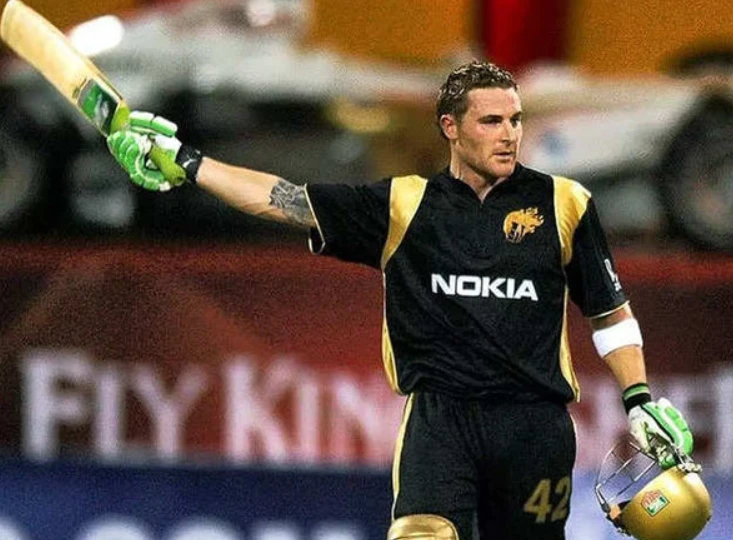
The very first match set the tone for what was to come. Brendon McCullum, playing for Kolkata Knight Riders, lit up the opening night with a sensational unbeaten 158 runs against Royal Challengers Bangalore. His powerful hitting and fearless approach captured the attention of cricket fans across the globe and showed that the IPL was here to change the game. That innings remains one of the most iconic moments in IPL history and a perfect opening chapter.
RCB vs KKR: 18th April 2008
With the announcement of the IPL, everyone was excited to see how the League would unfold, as it was a new adventure for every cricket fan. Auctions, team formations, and city-based franchises were all new concepts in Indian cricket, and the buzz was electric. On 18 April 2008, the Indian Premier League made its grand debut at the M Chinnaswamy Stadium in Bengaluru. It was the beginning of a new era in cricket, and what followed on that night was a spectacle that few could have predicted. Brendon McCullum, representing Kolkata Knight Riders, played one of the most unforgettable innings in T20 history. His 158 not out from just 73 deliveries not only demolished Royal Challengers Bangalore but also set the tone for the League in years to come.
Kolkata Knight Riders were asked to bat first after Royal Challengers Bangalore captain Rahul Dravid won the toss. The atmosphere was filled with anticipation as the first ball of the League was bowled by Praveen Kumar and after that, it was an absolute carnage from the batting team. Brendon McCullum opened the innings alongside Sourav Ganguly and quickly took charge. Even though Ganguly fell early for 10, McCullum kept the scoreboard ticking with his aggressive approach.
McCullum brought up his fifty off just 32 balls, but he was just getting started. His stroke play was fearless, mixing classical shots with brute power. He took on every bowler with ease, dispatching them to all corners of the ground. Whether it was the pace of Zaheer Khan or the medium pace of Ashley Noffke and Jacques Kallis, McCullum seemed unstoppable. The Knight Riders reached 100 in just under 11 overs, and McCullum was already well past his half century.
Ricky Ponting provided some support with a steady 20 off 20 before falling to Kallis. David Hussey also chipped in with 12 off 12, but the star of the show remained McCullum. He reached his century in just 53 balls with 8 boundaries and 7 sixes. The crowd erupted in joy as he celebrated a sensational hundred on IPL’s debut night.
McCullum continued his carnage even after the milestone. He went on to smash a total of 10 fours and 13 sixes. His unbeaten 158 came at a strike rate of over 216, a number that was hard to comprehend at the time. His innings helped Kolkata Knight Riders post a massive total of 222 for 3 in their 20 overs, a score that looked nearly impossible to chase.
For Royal Challengers Bangalore, the bowling figures told the story of McCullum’s dominance. All bowlers were taken apart. Praveen Kumar conceded 38 runs in his 4 overs, Zaheer Khan gave away 38 with one wicket, while Ashley Noffke and Jacques Kallis went for 40 and 48 respectively. Cameron White bowled just one over and was hit for 24 runs. None of the bowlers could find a way to stop McCullum.
Chasing 223, Royal Challengers Bangalore never looked in the hunt. Their innings started with Rahul Dravid getting bowled by Ishant Sharma for just 2. Wasim Jaffer followed soon after, and young Virat Kohli, playing his first major T20 match, also failed to make an impact and was bowled for 1. The middle order collapsed in no time, with Kallis, White, and Boucher all falling cheaply. The scoreboard read 43 for 7 at one point, and the match had completely tilted in favor of Knight Riders.
Ajit Agarkar was the pick of the bowlers for KKR, taking 3 wickets for 25 runs. Ashok Dinda and Ishant Sharma picked up 2 and 1 wickets respectively. Even captain Sourav Ganguly bowled 4 overs and got 2 wickets for 21 runs. Laxmi Ratan Shukla took the final wicket of Sunil Joshi to end the RCB innings at just 82 in 15.1 overs. This handed KKR a massive win by 140 runs. It was a total team performance by Kolkata Knight Riders, but the entire focus was rightfully on Brendon McCullum. His innings of 158 not out broke several records. At the time, it was the highest individual score in a T20 match and the highest in the IPL. More than the numbers, it was the manner in which he dominated the bowlers and entertained the crowd that made it unforgettable.
McCullum’s knock was not just a performance, it was a statement. It showed the world what the IPL was capable of offering. Big hits, electrifying atmosphere, superstar players, and edge of the seat entertainment. That one innings gave the League the start it needed and laid the foundation for it to become the most successful T20 competition in the world.
Brendon McCullum was named the Player of the Match for his epic knock. His effort on that opening night remains one of the most iconic moments in IPL history.
Since that day, the IPL has gone on to become a global cricketing festival, but it all started with one man’s brilliance. Brendon McCullum turned what could have been a cautious start into an explosion of entertainment. Every cricket fan who watched that innings remembers it vividly. It was the perfect curtain raiser, and it ensured that the IPL was here to stay.
In the end, 18 April 2008 was not just the beginning of a cricket league, it was the beginning of a revolution. Thanks to McCullum’s magical 158 not out, the IPL had its dream start.
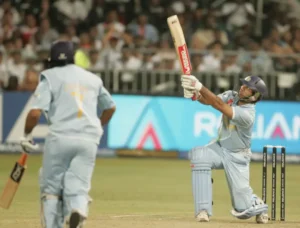
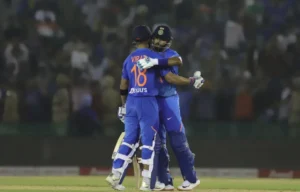

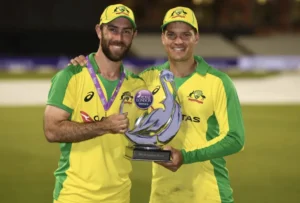
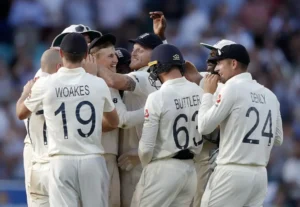
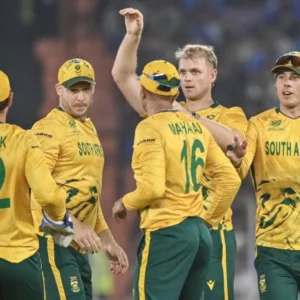
Comments